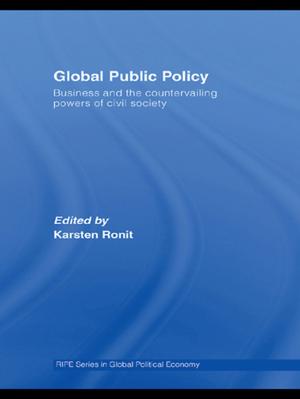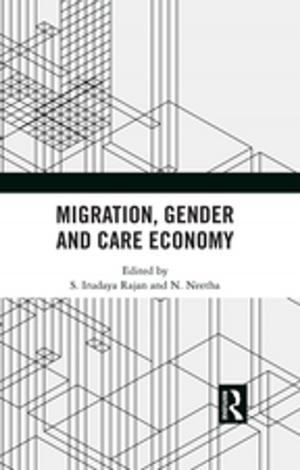Globalisation, Freedom and the Media after Communism
The Past as Future
Nonfiction, Social & Cultural Studies, Political Science, Social Science| Author: | ISBN: | 9781317967637 | |
| Publisher: | Taylor and Francis | Publication: | October 18, 2013 |
| Imprint: | Routledge | Language: | English |
| Author: | |
| ISBN: | 9781317967637 |
| Publisher: | Taylor and Francis |
| Publication: | October 18, 2013 |
| Imprint: | Routledge |
| Language: | English |
This book examines the fate of post-Soviet press freedom and media culture in the context of the growing impact of globalisation. To understand the complicated situation that has arisen with respect to these issues in post-Soviet space is impossible without collaboration between political scientists, sociologists, cultural analysts, media studies researchers and media practitioners. The book is one of the first attempts to bridge the gaps between political and cultural studies approaches, between textual analysis and audience research, as well as between practitioner-led and scholarly approaches to the post-Soviet media The cumulative impact of the essays contained in this section is to reinforce the intuition which inspired it: that the post-Soviet media remain a highly heterogeneous, complex and dynamic field for investigation. With contributions from scholars and journalists across Europe (including the former Soviet Union), the collection addresses such issues as censorship and elections, the legacy of the Soviet past, terrorism and the media, the post-Soviet business press, advertising and nation building, official press discourse and entrepreneurship, and global formats on Russian television.
This book was originally published as a special issue of Europe-Asia Studies.
This book examines the fate of post-Soviet press freedom and media culture in the context of the growing impact of globalisation. To understand the complicated situation that has arisen with respect to these issues in post-Soviet space is impossible without collaboration between political scientists, sociologists, cultural analysts, media studies researchers and media practitioners. The book is one of the first attempts to bridge the gaps between political and cultural studies approaches, between textual analysis and audience research, as well as between practitioner-led and scholarly approaches to the post-Soviet media The cumulative impact of the essays contained in this section is to reinforce the intuition which inspired it: that the post-Soviet media remain a highly heterogeneous, complex and dynamic field for investigation. With contributions from scholars and journalists across Europe (including the former Soviet Union), the collection addresses such issues as censorship and elections, the legacy of the Soviet past, terrorism and the media, the post-Soviet business press, advertising and nation building, official press discourse and entrepreneurship, and global formats on Russian television.
This book was originally published as a special issue of Europe-Asia Studies.















